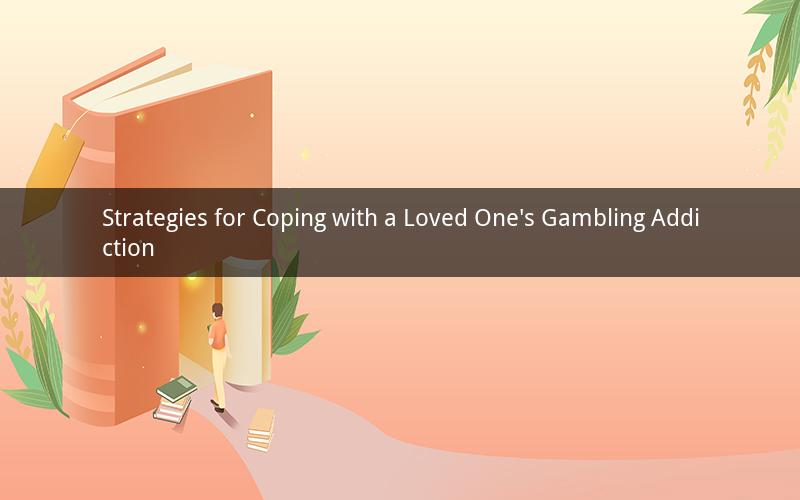
Living with someone who has a gambling addiction can be challenging and emotionally draining. It's important to understand that gambling addiction is a disease that affects both the gambler and those close to them. Here are some strategies to help you navigate this difficult situation.
1. Educate Yourself
The first step in dealing with a loved one's gambling addiction is to educate yourself about the disorder. Understanding the nature of the addiction can help you gain empathy and support your loved one more effectively.
Gambling addiction is characterized by an inability to control the urge to gamble, even when it causes significant problems in one's life. It can lead to financial, legal, and emotional consequences. Recognizing the signs of addiction can help you identify when your loved one needs help.
2. Seek Professional Help
Encourage your loved one to seek professional help from a therapist or counselor specializing in gambling addiction. A professional can provide personalized support and treatment plans tailored to your loved one's needs.
Therapy options for gambling addiction may include cognitive-behavioral therapy (CBT), family therapy, or group counseling. These treatments can help your loved one develop healthier coping mechanisms and address the root causes of their addiction.
3. Set Boundaries
It's crucial to set boundaries for yourself while supporting your loved one's recovery. This may involve limiting your financial support, spending less time with your loved one when they're gambling, or avoiding discussions about gambling altogether.
Setting boundaries can help you maintain your mental and emotional well-being while providing your loved one with the space they need to work on their recovery.
4. Encourage Financial Responsibility
Help your loved one take responsibility for their financial situation by creating a budget, seeking financial counseling, or even taking control of the household finances. This can help prevent your loved one from continuing their gambling habit and ensure that your family's needs are met.
Remember that financial recovery is a gradual process, and it's essential to be patient and supportive throughout this journey.
5. Practice Self-Care
Caring for someone with a gambling addiction can be emotionally taxing. It's crucial to take care of yourself during this time. Engage in activities that promote your well-being, seek support from friends and family, and consider joining a support group for loved ones of individuals with gambling addiction.
Remember that taking care of yourself is not selfish; it's necessary to maintain your emotional and physical health while supporting your loved one.
6. Maintain Open Communication
Maintain open and honest communication with your loved one throughout their recovery journey. Encourage them to share their feelings and struggles, and be willing to listen without judgment or criticism.
Open communication can help build trust and strengthen your relationship with your loved one, making it easier to navigate the challenges of living with a gambling addiction.
7. Support Groups
Joining a support group for loved ones of individuals with gambling addiction can provide you with valuable resources, guidance, and emotional support. These groups offer a safe space to share your experiences, learn from others, and gain insight into how to cope with the challenges of living with a gambling addiction.
8. Encourage Relapse Prevention
Encourage your loved one to develop a relapse prevention plan. This plan should include strategies for identifying and coping with triggers, as well as steps to take if they do relapse.
Supporting your loved one in their efforts to prevent relapse can help them maintain their recovery and reduce the risk of further damage to their life and relationships.
9. Be Patient and Understanding
Recovery from a gambling addiction is a long and challenging process. Be patient and understanding with your loved one as they work through their issues and adjust to a new way of life.
Remember that setbacks are a normal part of the recovery process, and it's important to stay supportive and focused on your loved one's overall progress.
10. Focus on the Present
Instead of dwelling on the past or worrying about the future, focus on the present moment. This can help you stay grounded and provide a more positive environment for your loved one.
By focusing on the present, you can better support your loved one's recovery and create a healthier, more stable home environment.
Questions and Answers:
1. Q: How can I support my loved one while maintaining my own mental health?
A: Seek support from friends, family, or support groups for loved ones of individuals with gambling addiction. Practice self-care and set boundaries to protect your emotional and physical well-being.
2. Q: What should I do if my loved one's gambling addiction causes financial problems for our family?
A: Encourage your loved one to seek financial counseling and take control of the household finances if necessary. Create a budget and prioritize your family's needs to ensure financial stability.
3. Q: Can I force my loved one to seek treatment for their gambling addiction?
A: While you can encourage your loved one to seek treatment, you cannot force them. However, expressing your concerns and providing information about available resources can help them recognize the importance of getting help.
4. Q: How can I help my loved one stay motivated during their recovery process?
A: Celebrate small victories and milestones in their recovery journey. Encourage them to set achievable goals and provide them with emotional support when they face challenges.
5. Q: What should I do if my loved one relapses after seeking treatment for their gambling addiction?
A: Stay supportive and remind your loved one that relapse is a part of the recovery process. Encourage them to seek additional help or support from their therapist or counselor and help them develop strategies to prevent future relapses.